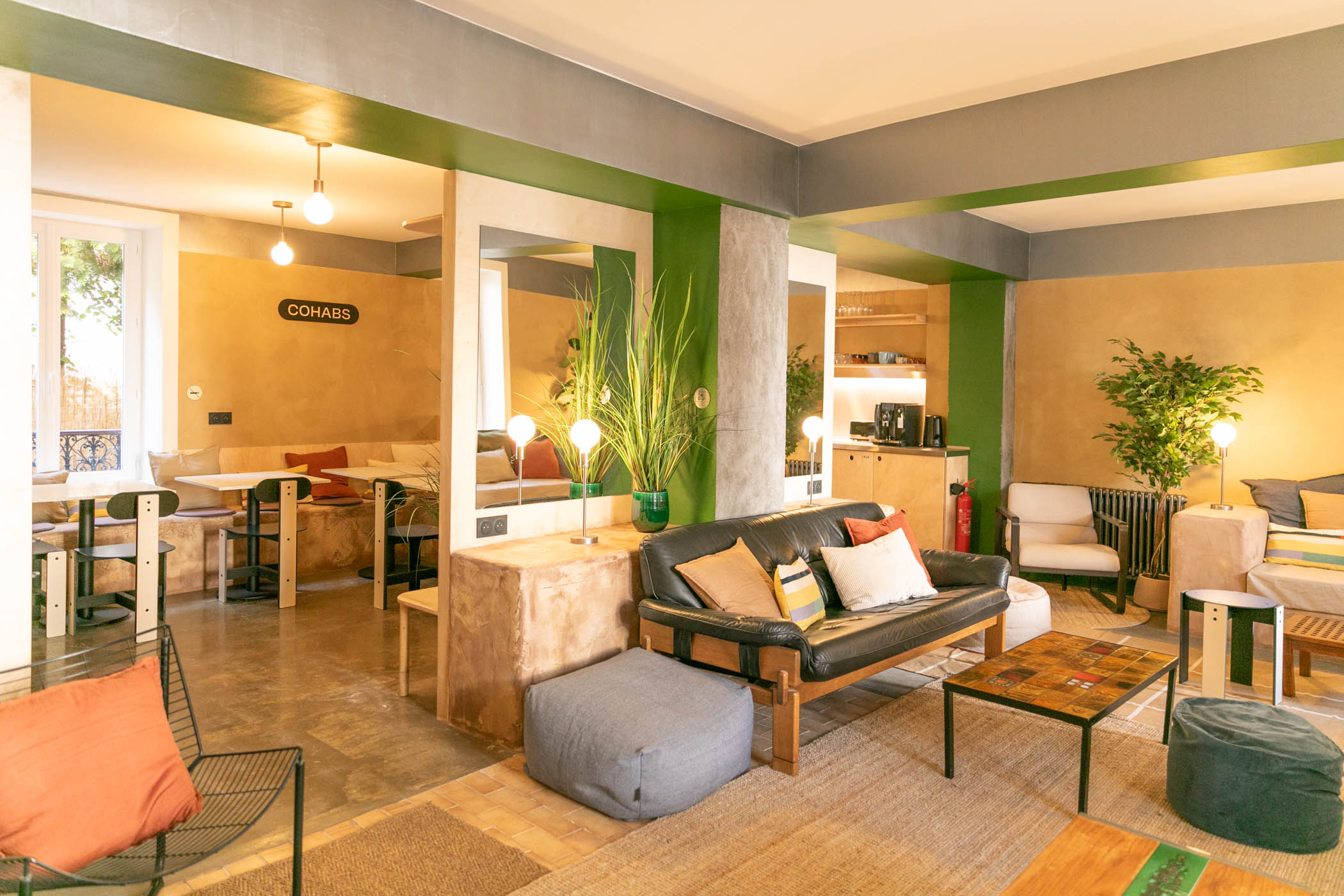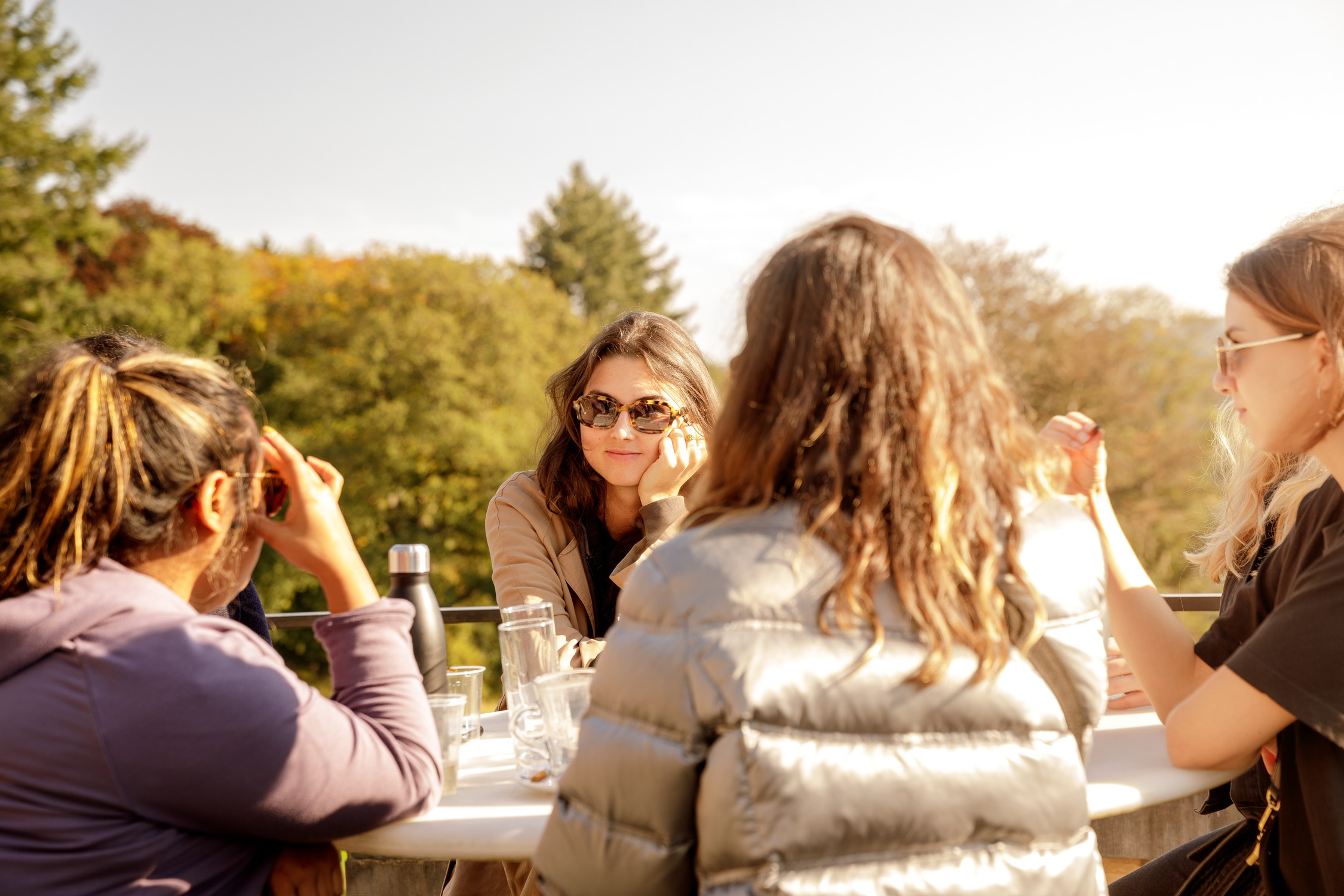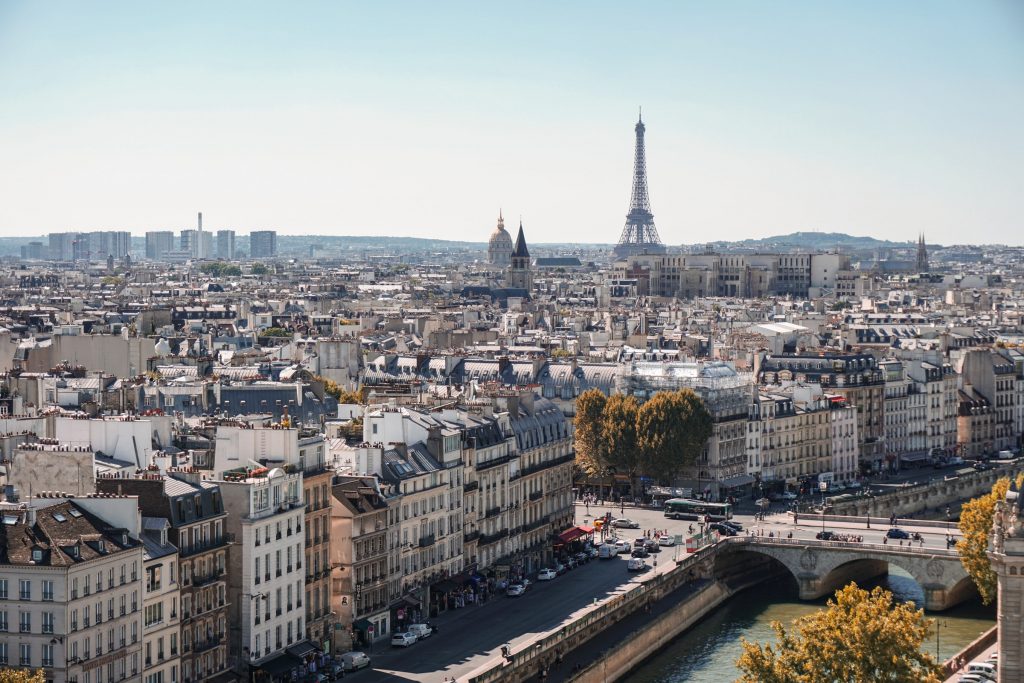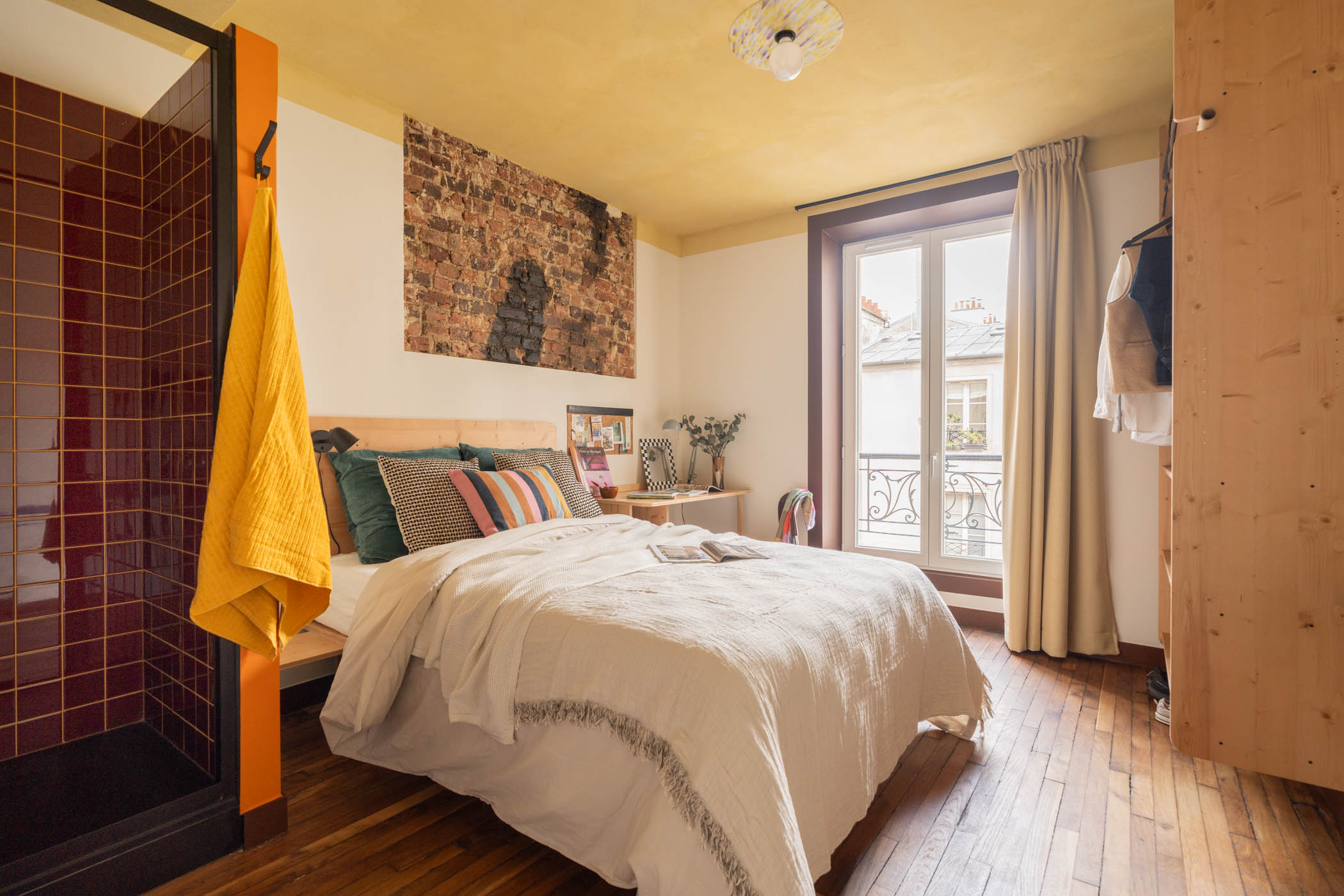The essential things you need to know before moving to Paris
For many people, moving to Paris is the ultimate fantasy. But before you fall too hard for the City of Love – what is it like to actually live there?

For many people, moving to Paris is the ultimate fantasy. But before you fall too hard for the City of Love – what is it like to actually live there?
Do you have your sights set on Paris? Whether relocating to the French capital has always been your dream, you’re going for love, or it’s work dragging you there, there’s a lot to like about living in this iconic city. It’s a city of legends, the City of Light!
Known for its haute cuisine and haute couture, living in Paris offers rich servings of romance and reality in equal measure.
Get ready to navigate the latter with some tips that’ll help you prepare to share a skyline with La Tour Eiffel. From how to find a place to live in Paris to what to eat, to medical insurance and making friends, get tips on what to expect and where to begin.
Table of Contents
- 1.Paris is a big city, but its apartments are small
- 2.Food also often comes in small sizes
- 3.Paris is full of expats… who speak French
- 4.There’s going to be some paperwork involved….
- 5.Get your visa/working permit in order
- 6.Open a French bank account
- 7.Get French health insurance
- 8.Join the French social security system
- 9.Register with a local doctor
- 10.Learn your way around Paris
- 11.About transportation
Paris is a big city, but its apartments are small
Paris may feel like a sprawling cosmopolitan on the long train ride into town from Charles de Gaulle Airport, but you’ll quickly feel the presence of more than 2 million people. Paris is among the most densely populated cities in the world.
So, when it comes to carving out your own living space among the masses... expect small apartments and hefty price tags.
According to Expatistan, an apartment for one person will set you back between €1,300 (<480 ft²) and more than €3,000 (900+ ft²) per month – depending on size, furnishings, and arrondissement (neighborhood). And that’s not even taking your other expenses into account.
In addition to rent, a single person should budget at least €1,000 a month for other expenses – that number quickly climbs above €3,000 for a family of four.
You can do your own research on popular Parisian housing sites like Pap, or classified ad sites like Fusac, leboncoin, and Craigslist – just beware of scams!
But if you’re relocating to Paris, you’ll want to consider ways you can keep the costs down. Step one is to give up taxis and get to know Paris excellent metro system.

Another good option? Shared living.
With coliving, you can find a place in Paris – a private bedroom in a shared house – for much less money than you would spend elsewhere.
Rather than being crammed into a small studio apartment, you’ll have a private bedroom in a large, stylishly decorated house with a huge kitchen and plenty of indoor and outdoor space to lounge and socialize.
Plus, the service charges, cleaning, and all the other extras that add up are usually included. You just need to be willing to sign a six-month lease (and even a three-month lease during the summer). Coliving is also a more sustainable way to live, so you can contribute to a greener Paris.

Food also often comes in small sizes
Paris is known for its restaurants that set the standards for cuisine around the world.
And those restaurants feel that culinary pleasures are best experienced in miniature portions – especially at the most famous restaurants, but even bistrocafé portions are going to look small to someone from the US or UK.
That goes for every course, from coffee to cakes. Hence all those courses!
Paris does also offer more low-key culinary pleasures.
Breakfasts (le petit-déjeuner) are generally simple and carbs-based: a tartine (bread with jam), yogurt, and a croissant, perhaps some viennoiserie pastries on weekends.
Coffee is a must.
Then, lunches (le déjeuner) are long and leisurely compared to other parts of the world, and often accompanied by wine. In any case, it is considered odd or even rude to eat on the go. Don’t gnaw on a baguette while walking.
Sit and enjoy.

Eat well, because the French famously don’t snack, and dinner isn’t served until at least 8 pm. Lunch is often the biggest meal of the day. But when it’s a special occasion, and time to dine out, dinner (dîner) is clearly the star of the show. A dinner out is generally bookended by aperitifs and digestifs (servings of French liqueurs).
Paris may be home to the Michelin star, but there are excellent dining options for every budget. Try one of these hotspots, covering all price points:
- Michelin-starred Comice ($$$$) serves modern French fare accompanied by lesser-known wines from around the world. You’ll want photos of both the food and the dramatic floral arrangements.
- Le Bistrot Flaubert ($$$) offers Korean takes on French classics in a setting charmingly filled with flea market bric-abrac.
- Craving some comfort food? Squeeze into Parcelles ($$) in the Marais neighborhood for a changing menu of stylish bistro cuisine with a surprisingly extensive selection of wines by the glass.
- You’ll find the city’s best ramen right at its heart, at Menkicchi ($), part of a cluster of Asian restaurants near the Museum du Louvre. Do make sure to add a side of gyoza.
Cutting costs?
Do your own cooking. That’s what the locals do. Simply perusing the markets, selecting fresh ingredients to prepare and share with friends, is one of the most fundamental of French pleasures.
Explore, for example, the Marché des Enfants Rouges, the Marché d’Aligre, or even the Marché International de Rungis – where chefs go shopping. (It helps, of course, if you have a house with a large kitchen and shared dining space!)
Paris is full of expats… who speak French
Paris is an international city, with one of the world’s densest expat populations. But it is also very much a French city, and you will often feel left out or lost until you learn the local language.
If you’re moving to Paris for work, ask your employer if language classes are included in their employment package. Otherwise, you can always turn to language apps, but in-person classes will not only push your progress along faster, but they’ll also give you a chance to meet more people.
If you’re wondering how to make friends in Paris, the good news is that you’ll find many others in the same situation.
Meetup.com is a great place to find local groups in your specific areas of interest.
Beyond that, a little time with Google will lead you to a wide array of social clubs for every interest, from wine-tasting groups to gatherings of football fans to game nights. Or join a language-exchange club and kill two birds with one stone: make friends while you polish your French.

Making fast friends – a family even – is another advantage of living in a Cohabs house. You’ll never be lonely in a coliving space (though you can always retreat to your bedroom whenever you need some private time).
If you’re not working in your company’s office, a coworking space is another great way to meet like-minded fellow Parisians. Work-life balance is not only important in Paris, it’s actually legally enforced (overtime is not an option here). So, there will be plenty of time to both work and play!
There’s going to be some paperwork involved….
If you’re not a French citizen or already a resident of France, you’re going to need to wade through some classically Parisian red tape to establish your identity here.
Take a deep breath; we’ll get through this together, and it’ll all be worth it. The most important things you’ll need to do ASAP are:
Get your visa/working permit in order
If you are from the EU/EEA or Switzerland, it will be a little easier for you to settle in Paris. You won’t need a visa or a working permit, and you don’t even need to register as a French resident at your local Mairie (town hall), though you might need to show proof of income.
Family members of EU, EEA, Swiss citizens often enjoy the same benefits, though they need to apply for a carte de séjour (residency permit) within three months of arrival. If none of this applies to you, then you or your employer (usually your employer) will need to apply for a visa.
If you’re working in France for less than 90 days, your employer will need to get you a temporary work permit, usually from the French Ministry of Labor.
If you will be working in France for more than 90 days, you will need to apply for a long-stay work visa – which will also operate as your residence permit – before you arrive. And all family members will also need to apply, on their own or through your employer. Once approved, your visa will be sent to the French embassy in your home country, and they will make an appointment for you to come to collect it.
After which point, you are welcome to stay in France for the time and under the conditions specified.
Open a French bank account
You’ll need it to get paid, pay your bills, easily access cash, etc. It’s one of the first things you need to do, but it’s often trickier than it should be. You’ll need proof of a local address, but you need a bank account to rent a property. The solution: use a temporary address, and switch it to your real address once you get settled.
Beyond that, expats have been known to be turned away from banks for reasons like not speaking French well enough or not having a regular income.
Whether or not you’re approved can come down to luck, in terms of whom you speak to – but you can save yourself time by calling ahead (you need to make an appointment to open a bank account anyway).
Tell them your situation, and ask if you can open an account with their bank. If they say no, move on. Another bank will say yes. Opening an account with one of the modern online banks, like N26 or Bunq, is often an easier option.
Once you’ve made an appointment, make sure you know what paperwork you will need for your specific situation, and have everything ready before your appointment. Don’t underestimate how much time you’ll need to gather all the paperwork.

Get French health insurance
The good news is that the French medical system is considered to be excellent.
You will be required to opt in: all residents of Paris must have French medical insurance.
There are two types of French health insurance: the public healthcare system, and private healthcare packages (mutuelles).
Most expats are now eligible for the state-funded Protection Universelle Maladie (PUMa). You just have to have lived in France for at least three months consecutively. Until that time, you can use private insurance.
PUMa will cover about 70-80% of your healthcare costs (up to 100% for medication), and you’ll need to carry around your carte Vitale to avoid needing to make upfront payments.
Most people will also want to add on some private insurance mutuelles for (extra) dental coverage, coverage of therapists, specialists, etc.
To sign up for French health insurance (if your employer doesn’t take care of this for you), you’ll need to either join the social security system (more on that in a moment) or visit your local CPAM (Caisse Primaire d’Assurance Maladie).
Join the French social security system
This, as well as your health insurance, is often arranged for expats by their employers. However, if you are self-employed, you will need to apply via the Régime Social des Indépendants (RSI).
Register with a local doctor
Every resident over the age of 16 should register with a GP (médecin traitant).
This is important for getting your medical costs reimbursed, and not doing so will be penalized with higher fees.
There are a number of online portals to search for doctors. Try Doctolib, Maiia, Keldoc, RDV Médicaux, and the government’s healthcare portal Ameli – all in French, but Doctolib and Maiia will let you search for doctors who speak other languages.
Once you find a doctor, check their online profile to see if they’re taking new patients.
If so, make an appointment (without insurance this costs about €25), and if you’re happy with the doctor, then during the appointment you can ask them to be your médecin traitant.
Or fill in a Déclaration de choix du médecin traitant form at your local CPAM.
Once you’ve registered with a doctor, keep in mind that you won’t get the same reimbursements if you go to see any other doctor without a referral.
Learn your way around Paris
It’s a sizable city by most measures. But it’s not hard to learn how to get around Paris. Luckily, the extensive metro network is easy to use and operates nearly 20 hours a day. 90% of the time this is how you will be getting around town. The 16 metro lines connect into and are supplemented by the RER network, which operates both above and below ground and connects to more distant Parisian destinations, like the airports and Disneyland. And of course, a network of buses and trams fills in every possible destination, though buses have more limited hours, especially on the main lines.
There are some night buses (Noctilien) to pick up the slack. Not to mention several types of transportation that are destinations in their own right, like the Montmartre funicular or the Montmartrobus. You can use the same transportation passes (single ride, weekly or monthly card, etc.) for all these options, though fares are higher if you’re crossing multiple zones. (T+ tickets can only be used in zone 1.)

About transportation
For buses, the single-ride T+ ticket has some limitations (you can’t switch from the metro to the bus, for example), and tickets purchased on the bus cannot be used on other forms of transportation.
Longer-term residents will opt for a Passe Navigo, which requires you to sign up for a weekly or monthly subscription for the zones of your choice.
You'll pay €5 and you need a passport photo for the card itself (valid for 10 years), but it offers significant savings.
And of course, if you insist, there are always taxis.
The costs are in line with what you might expect in other major cities (a starting price of around €2.60, with around €1 a kilometer tacked on, as well as extra costs for holidays, suitcases, a fourth person, etc.).
And it’s not a bad idea to pay attention during your ride to make sure you’re not being taken on the scenic route. Uber and Bolt are also options for those who prefer ride-sharing apps.

And of course, the best way to get around is walking!
It’s the ideal option to fully experience the city’s dramatic architecture, diverse markets, hidden gardens, and iconic bridges. Moving is always a pain, but a robust system of social services makes the Paris paperwork worth the effort.
Then it’s time to explore the city’s many pleasures: museums, art galleries, restaurants, cafes, bookshops, monuments, and so much more.
Bienvenue à Paris !